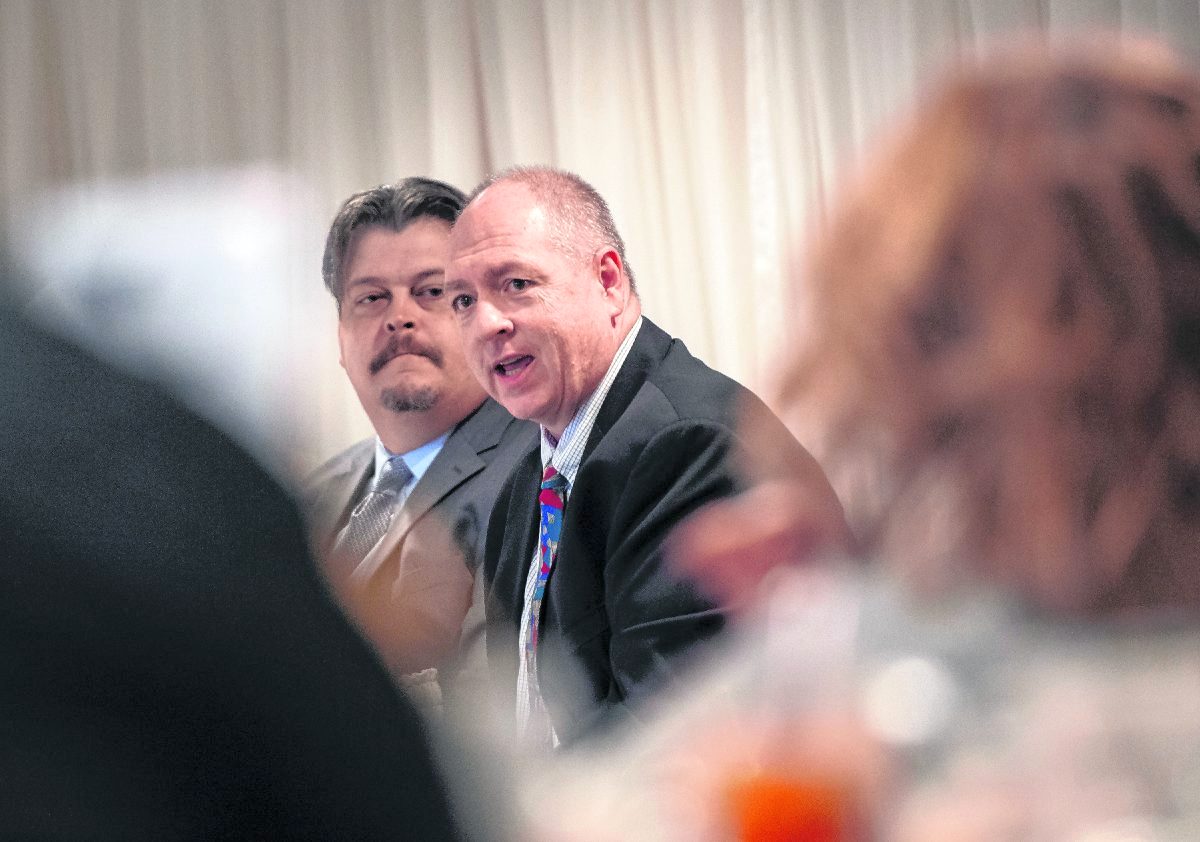Last November, counties around the state and across the country faced an Election Day like no other, and now, a state lawmaker wants to make sure Indiana is better prepared the next time that happens.
Senate Bill 398, authored by Sen. Greg Walker, R-Columbus, is a massive piece of legislation that would address and tweak several state laws regarding elections to make the process smoother and more standardized.
This 63-page bill has 25 different components, so far. The bill is a cumulative response to a collection of election laws that needed to be tweaked based on issues Walker noticed the last two years, particularly during the 2020 presidential election when a record-number of Hoosiers voted by mail.
A main piece of the legislation is standardizing the process of counting and verifying absentee ballots.
A record-breaking 500,000 Hoosiers — including 14,000 in Johnson County — voted by mail in 2020. The influx of mailed votes left election officials overwhelmed and scrambling to come up with plans to count all the ballots on Election Day.
“I think the clerks did a fantastic job and deserve our recognition of all the work they had to do to pull this off,” Walker said. “We just want to make sure they have the tools to continue to do outstanding work.”
Many of the details in the bill outline more specific procedures for handling absentee ballots, particularly if a signature on the envelope is questionable. If the bill becomes law, an absentee board would have to agree unanimously whether to keep or throw out a ballot if a signature is disputed.
If a ballot is rejected, the voter must be notified by mail or phone so they have enough time to come in and verify their signature, according to the proposed legislation. Notifying voters that their absentee ballot is rejected is not required by state law.
It was in the hands of county election boards to decide whether voters should be notified about rejected ballots. Johnson County rarely saw questionable signatures on mailed ballots, but if there were any, the county would contact the voter to verify their signature, said Trena McLaughlin, county clerk.
"Often, a signature card has been around for 20 or 30 years, and people’s signatures change over time. There’s somewhat of an attempt here to standardize that procedure for the curing of a ballot … we want to make sure all voters are treated equally," Walker said.
Also, though it is not included in the bill yet, Walker and the Indiana Secretary of State’s Office are considering allowing counties to read and scan absentee ballots prior to Election Day but release vote count totals on Election Day.
Indiana law prohibits counting any early ballots before Election Day, but Walker said giving local clerks a head start on the process would help with workloads and increase confidence in election security.
"We’d like to see the ability for our clerks to spread out that work a little bit, and not be pressured on the last day to do all these steps," Walker said.
Johnson County’s November election was handled well overall, McLaughlin said. She did not know for sure whether this bill in particular would help with her staff’s workload because the county was already well-prepared, she said.
"This election in 2020 was like no other election," McLaughlin said. "Johnson County did a great job. We had great poll workers. We had great absentee workers. They were organized."
Another change proposed in SB 398 would move the deadline to receive absentee ballots from noon to 6 p.m. on Election Day. Counties that use electronic poll books would be able to handle receiving mailed ballots later, and having all voting end by 6 p.m. would create more consistency, Walker said.
"We’re working on a way to make that process the same for all voters — a 6 p.m. deadline," he said.
McLaughlin, though, is not so sure about the later deadline because Election Day is already extremely busy for election workers, she said.
"You’re already having your absentee board workers work so many hours on Election Day. I feel like we give our voters ample time to return their ballots, so I don’t think I’m really for the 6 p.m. deadline," McLaughlin said.
Taking these statewide measures are critical now due to the increased popularity of voting by mail, Walker said. There may not be another election like 2020’s, but both Walker and McLaughlin say absentee voting will remain more popular than it was in the past.
"I think that’s here to stay, and I think Hoosiers enjoy having those options," Walker said. "We need a way to assist our counties."
Everything the state can do to demonstrate a chain of custody in the election process, the better, he said.
"We can have different processes for different countries, but they have to be justifiable," Walker said. "You don’t just assume all that responsibility, you need a process for it."





